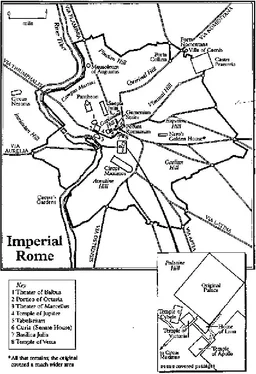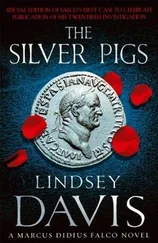Lindsey Davis - The course of Honor
Здесь есть возможность читать онлайн «Lindsey Davis - The course of Honor» весь текст электронной книги совершенно бесплатно (целиком полную версию без сокращений). В некоторых случаях можно слушать аудио, скачать через торрент в формате fb2 и присутствует краткое содержание. Жанр: История, на английском языке. Описание произведения, (предисловие) а так же отзывы посетителей доступны на портале библиотеки ЛибКат.
- Название:The course of Honor
- Автор:
- Жанр:
- Год:неизвестен
- ISBN:нет данных
- Рейтинг книги:5 / 5. Голосов: 1
-
Избранное:Добавить в избранное
- Отзывы:
-
Ваша оценка:
- 100
- 1
- 2
- 3
- 4
- 5
The course of Honor: краткое содержание, описание и аннотация
Предлагаем к чтению аннотацию, описание, краткое содержание или предисловие (зависит от того, что написал сам автор книги «The course of Honor»). Если вы не нашли необходимую информацию о книге — напишите в комментариях, мы постараемся отыскать её.
The course of Honor — читать онлайн бесплатно полную книгу (весь текст) целиком
Ниже представлен текст книги, разбитый по страницам. Система сохранения места последней прочитанной страницы, позволяет с удобством читать онлайн бесплатно книгу «The course of Honor», без необходимости каждый раз заново искать на чём Вы остановились. Поставьте закладку, и сможете в любой момент перейти на страницу, на которой закончили чтение.
Интервал:
Закладка:
"Will he manage?"
"What do you think?"
"I hope he does," taunted Caenis, with her occasional abrupt habit of not thinking before she spoke. "The old skinflint owes me ten thousand sesterces!"
It was Narcissus who blushed now. Vespasian was notorious for never having any money, but this glimpse of his bedroom habits was too startling to be believed.
"I had hoped," returned the freedman tartly, "I had taught you never to lend!" He was looking faintly worried as he tried to make her out. Since he had known her as a girl, someone, perhaps even Vespasian himself, had turned this one into a tease. "I would have found him myself in the end, you know, Caenis; he was always on my list."
"Does that mean you agree with me?"
"Oh, he's outstanding," said Narcissus tersely. Then, unable to resist his nagging anxiety, "I'll give you ten thousand; it seems fair, and that tightfisted miser will never pay you back." Curious, when she did not answer he felt compelled to insist, "You'll laugh if he does."
Caenis laughed now. " ‘Never lend if you need repayment; never give where you want a return.' Now who told me that? Oh, Narcissus, believe me, if ever he does repay me there is no question about it—I shall cry!"
TWENTY-TWO
By the time the last squadrons of auxiliary soldiers had left the Field of Mars, the magistrates were just approaching the Capitol. The long procession snaked through the Flaminian Circus, and entered the city through the Triumphal Gate, which was opened especially for the day. Following the Via Triumphalis, it wound past the theaters in the Ninth District to give as many folk as possible a decent view, made a complete circuit to the right around the Palatine, included the Circus Maximus, turned left at the Caelian Hill, took the Sacred Way into the Forum, passed along the southern side, then ascended Capitol Hill by the steep approach of the Clivus Capitolinus, up to the Temple of Jupiter at the heart of the Citadel. So Rome saw the army; the army saw most of Rome.
Everything moved at a dismal crawl. The whole city was at a standstill. The noise was incredible. The spectacle took the best part of a day.
Vespasian said, years afterward in the procession he shared with Titus for the capture of Jerusalem, that asking for a Triumph (it was customary to ask) was the act of an old fool.
* * *
There had already been the expected Triumph for Britain, when Claudius came home. The Senate could only vote one Triumph for any campaign. Strictly speaking, this later event was an Ovation for his returning commander in chief: a secondary thing. No one cared; everyone called it a Triumph just the same.
Earlier, in the real Triumph, the Emperor had done himself proud. He adopted the name Britannicus for himself and for his infant son. The senators who had gone with him to Britain were honored in suitable ways, while collars and crowns and headless spears for valor were handed out among the army like beechnuts at a wedding; Messalina rode in a special covered carriage right into the Citadel; there was all the pomp and racket that a conqueror might expect. All the provincial governors had been invited home to witness their new Emperor's status and power.
So Caenis had seen Antonia's ridiculous son received by Senate and people in triumph. His appearance was the high spot of a memorable day. Claudius came, in his circular chariot drawn by pure white steeds, as the military victor to beg the city's welcome home, and as a religious representative interceding for that city with its gods as chief priest for the day. He wore a flowered tunic and toga all of purple, richly decorated with patterns and deep borders of gold. In one hand the staff of Jupiter, an ivory scepter with a gold eagle at its head; in the other a symbolic laurel bough. Upon his head a laurel wreath; held above him by a public slave, the solid weight of the Etruscan chaplet of oak leaves and ribbons in pure gold, brought to him from the statue of Capitoline Jove, the Crown of Triumph that was too heavy for a mortal man to wear. In the chariot rode his infant children, Octavia and Britannicus.
But that was all three years ago. Everyone had said at the time how disappointing it was that most of the army needed to stay behind in the new province to contain the dangerous British tribes, and that although Hosidius Geta came home for the Triumph, it was the general, and some of the other commanders, that they really wanted to see.
Well; the great names were here today.
Rome could take another holiday. Claudius, who was a fair man, wanted this to be his general's day. Aulus Plautius would have in his own right the procession, the acclaim, the sacred ceremonies at the fulfilment of his vows, all the honors and all the feasts. The Emperor trotted out in person to congratulate him, and as they rode back into Rome together, Claudius surrendered to Aulus Plautius the place of honor on the right. The name of that dignified, diffident, subsequently scarce-remembered man was hailed by his soldiers and by the populace all along the route, acclaimed over and over to the skies.
But even before the street sweepers had sluiced the pavements clean at dawn, while the shopkeepers were still garlanding their porticoes with flowers, another name resounded through Rome.
"Io Triumphe!" cried the people and the soldiers. "Hail Claudius! Hail Plautius!" and "Hail Vespasian!"
* * *
Veronica had managed to rent a balcony that overlooked the processional route. It cost so much that Caenis felt churlish for wanting to refuse her invitation. So she went, and took the picnic: some cold Lucanian salami, bread, stuffed eggs, and pickled fish. She was not sure whether this choice made her a sentimentalist, or stupid, or ludicrously brave.
It was bound to be a long hot day. There were eight of them on a balcony that would comfortably seat three. Elbows kept knocking the plant pots down into the crowd below. Veronica regimented everyone endlessly. She had allocated them all broad-brimmed hats against the sun, and parsley crowns for when they grew tired of keeping on their hats. She had brought deep baskets of rosebuds for hurling at the parade, and to complete the chaos vast quantities of jugs of wine. "Just be grateful," cried Veronica, who was a hostess of the most considerate kind, "the price for the balcony includes the lavatory downstairs!"
The city was in turmoil long before there was anything to see. People had to arrive early in order to squeeze through the streets. This meant standing or sitting about getting sillier and louder, while far away Aulus Plautius was still reviewing his troops. The pickpockets were putting in gallant work.
At the Field of Mars further honors were announced, this time by Plautius himself. There were batons for the legionary commanders, more headless spears for soldiers who were valiant in battle, coronets for every man who saved a colleague's life, harness medals for the cavalry, armlets for some, and a bounty in cash for everyone. The legions and their individual cohorts all adopted commemorative standard-discs. And then there was a special award, one that Hosidius Geta had already won (most unusual since neither man had been a consul yet): the granting of full triumphal honors—the right to wear his triumphal wreath at festivals and to have his statue in bronze erected in the Forum of Augustus—to Flavius Vespasianus for his masterly campaign in the southwest.
All this delayed the march for hours.
* * *
The procession marshaled in traditional form. This saved the need to issue programs and helped the sculptors to record things accurately after the event. Caenis knew the procedure by heart; the order of a Triumph had always been a favorite subject for dictation tests. It was:
First: The Civic Escort
Читать дальшеИнтервал:
Закладка:
Похожие книги на «The course of Honor»
Представляем Вашему вниманию похожие книги на «The course of Honor» списком для выбора. Мы отобрали схожую по названию и смыслу литературу в надежде предоставить читателям больше вариантов отыскать новые, интересные, ещё непрочитанные произведения.
Обсуждение, отзывы о книге «The course of Honor» и просто собственные мнения читателей. Оставьте ваши комментарии, напишите, что Вы думаете о произведении, его смысле или главных героях. Укажите что конкретно понравилось, а что нет, и почему Вы так считаете.












